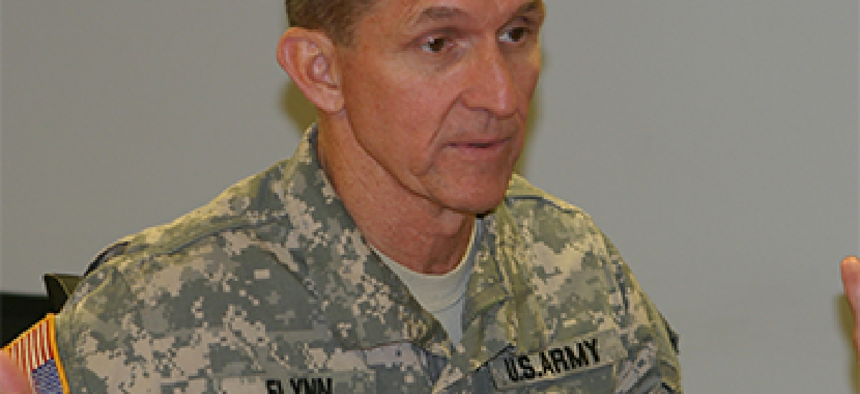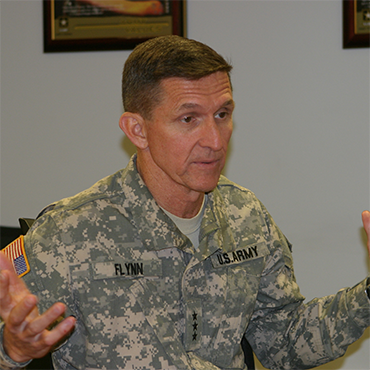Cyber, intell in 'infant stages' of cooperation

The military is still determining how best to apply ever-changing technology to gathering and using intelligence.

DIA Director Lt. Gen. Michael Flynn said officials are still figuring out how to use cyberspace capabilities for intelligence purposes. (Army photo)
It would seem that cyber operations in intelligence are a given, particularly after what has been revealed about the United States' online spying. But the joint use of the capabilities in the military is just beginning, according to one top intelligence official.
Military leaders are still determining how best to use the next generation of technology for intelligence and Pentagon operations. But those determinations are complicated by rapid changes and an increasingly crowded environment, Defense Intelligence Agency Director Lt. Gen. Michael Flynn said at a Brookings Institution event in Washington on Nov. 20.
"It's important that we leverage the technology in a smart way to understand what it is that's happening at the [tactical] edge and make, to a degree, the edge the center," Flynn said. "Cyber is a new domain, and over a third of the world is connected somehow. Five hundred million people on Twitter, a billion people on Facebook, all this volume of activity -- [there is] a lot of noise. Inside the military, there's still a tendency to think of intelligence and cyber as the same. It's not like that at all."
In the intelligence community and the Defense Department, the path toward intelligence in the cyber domain is less certain than some make it out to be. Officials are still determining how to use cyberspace, with its massive quantity of capabilities and applications.
"Cyber is a capability that allows us to understand an operational environment far better, allows us to see each other, allows us to communicate, allows us to defend, allows us to exploit, and so many other things. It definitely allows us to partner better," Flynn said, noting that cyber operations go far beyond defense. "If we as a nation have great capabilities to help other countries...applying cyber techniques and capabilities, then we need to do that. I think there's a tendency to think about warfighting as something negative. We have to look at how it can be turned into a positive."
Flynn also pointed out that the use of intelligence in the cyber domain is a crucial part of the movement taking place to secure the country's critical infrastructure.
"Intelligence enables decisions and operations," he said. "It enables ideas and new technologies. So intelligence definitely enables cyber.... We're still in the infant stages of how we will grow cyber capabilities in the future, and I do believe our U.S.-based private industry has to be part of that conversation to be able to assure the critical infrastructure of this country. And that's where it goes back to intelligence. We do a lot of assessments and input into many of those kinds of conversations, so that lash-up is very important."


